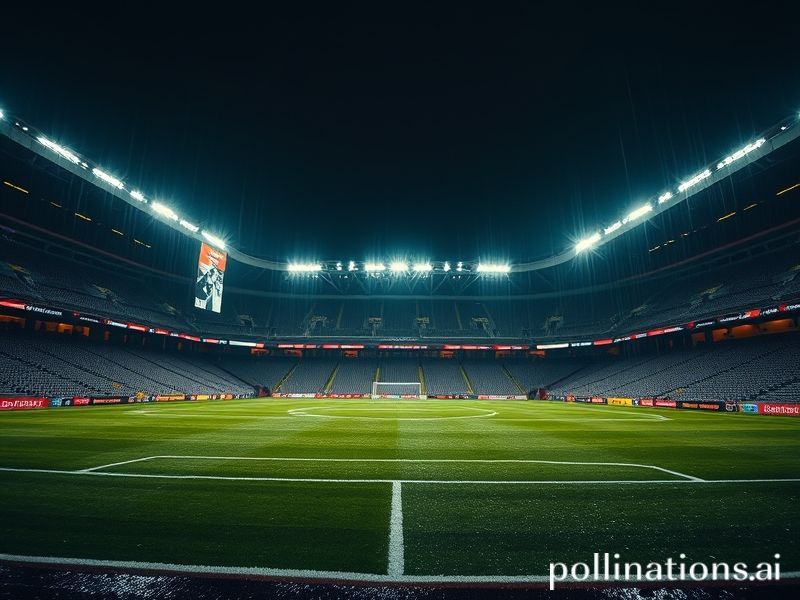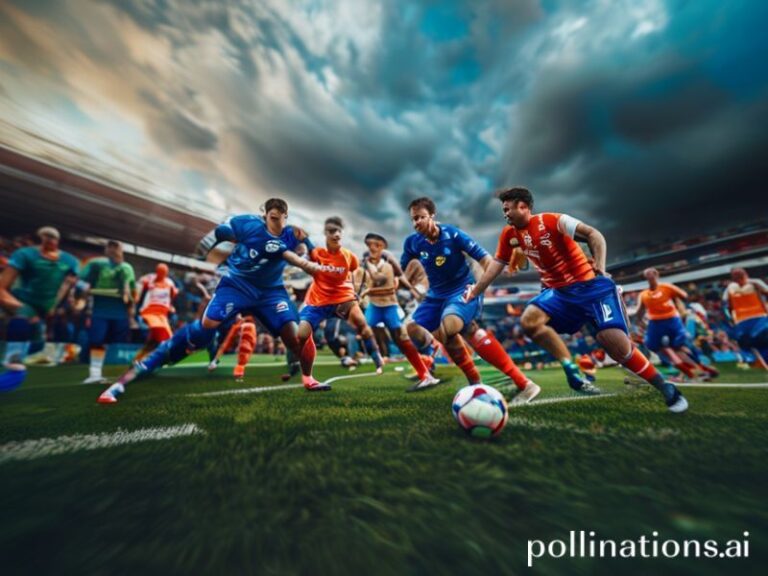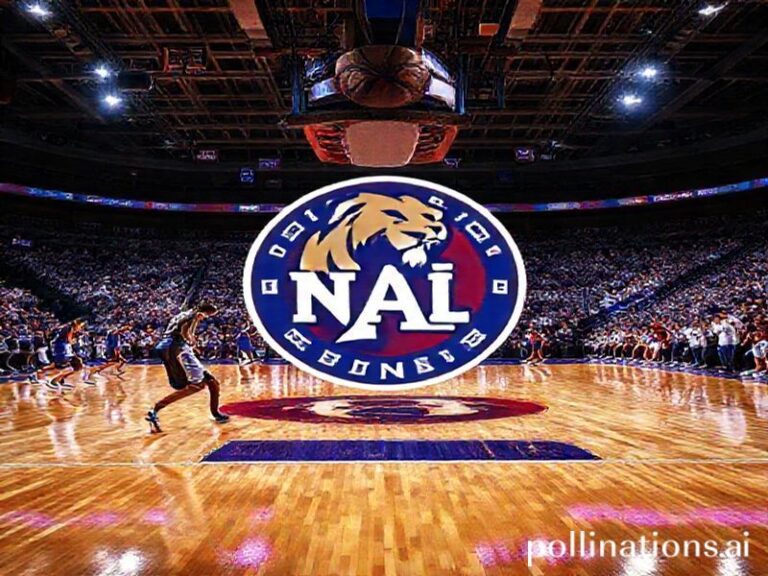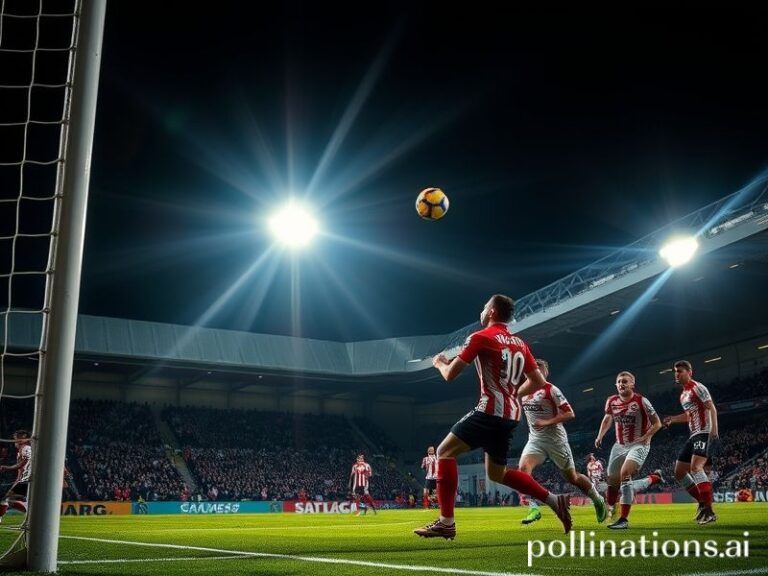From Colonies to Crypto: The Global Absurdity of Newcastle vs Wolves, 1898-Now
Sitting in a café that claims to be “Parisian” but smells exclusively of burnt sugar and desperation, I watch the replay of Newcastle United versus Wolverhampton Wanderers on a screen whose pixels long ago surrendered. Around me, Japanese tourists photograph croissants, a Russian oligarch haggles over the price of bottled water, and an American podcaster live-streams his disappointment that no one here speaks Brooklyn. In other words, the perfect backdrop for a fixture whose geopolitical footprint is roughly the size of a Greggs sausage roll, yet somehow still manages to reverberate from Novosibirsk to Nairobi.
1898 – The Prequel Nobody Asked For
When Newcastle and Wolves first met, Queen Victoria still had 27 colonies on speed-dial and the concept of “global branding” involved a crate of tea and a flag. Their initial clash finished 3-2 to the Geordies, proving that even in the age of steam locomotion, conceding late was already a proud Midlands tradition.
1951 – The Year Everyone Pretends to Remember
A 1-1 draw at Molineux featured a Yugoslav referee who spoke four languages but none of them football. The match is still cited by elderly men in flat caps as evidence that “the game’s gone soft,” which is ironic coming from a generation whose centre-backs smoked at half-time.
1993 – Satellite Television Discovers the North
Sky beams the teams into living rooms from Reykjavík to Riyadh. Overnight, Newcastle’s black-and-white stripes become an accidental fashion statement in Lagos nightclubs, while Wolves’ old gold shirts are mistaken for Brazilian knock-offs in Caracas markets. Somewhere in Silicon Valley, a junior engineer realizes he can monetize tribal rage at 30 frames per second.
2003 – The Mutual Relegation Hug
Both clubs descend together like awkward parachutists entangled mid-air. Financial analysts in Zurich call it “market correction”; fans call it the end of civilization. Al-Qaeda’s deputy media strategist briefly considers blaming the collapse on Western decadence, then decides even jihad has standards.
2010 – The Chinese Streaming Experiment
A Beijing start-up pays £1.2 million for digital rights, then discovers most Chinese viewers think “Wolverhampton” is a Marvel character. The experiment ends when the platform pivots to e-sports, leaving Geordie pensioners wondering why their grandkids now shout “gank mid” instead of “howay the lads.”
2018 – The Saudi Sovereign Wealth Fund Starts Taking Notes
Wolves are promoted with a Portuguese agent network that looks suspiciously like a money-laundering flowchart. Newcastle fans, meanwhile, launch a boycott against their own owner, a man who once tried to trademark the concept of disappointment. Human-rights lawyers in Geneva begin Googling “St. James’ Park” between Yemen briefings.
2021 – Pandemic Football, Now With 80% Existential Dread
The teams meet behind closed doors. Wolves win 2-1; the only witnesses are seagulls and a drone operated by a Malaysian betting syndicate. Global viewers rate the experience 3.5 stars: “Good match, lacked zombies.”
2023 – The Return of Full Stadiums and Empty Wallets
Saudi PIF completes its takeover of Newcastle, instantly making the club the richest entity in the North East that isn’t a North Sea oil rig. Wolves counter by unveiling a new sleeve sponsor—an Emirati NFT marketplace that collapses before halftime. Crypto bros in Singapore watch their portfolios evaporate faster than a Magpies clean sheet.
2024 – The Latest Chapter, Sponsored by Dystopia
The most recent fixture ends 2-2 after a 97th-minute equalizer. VAR checks the goal for so long that several viewers in Lagos assume their streams have frozen and restart their routers. Elon Musk tweets a Wolf emoji, causing a 3% spike in unrelated dogecoin derivatives. Somewhere in Kyiv, a refugee streams the match on a cracked phone, proving that even in war zones, humanity still has room for pointless agony.
Conclusion
From imperial tea rooms to fiber-optic trading floors, Newcastle versus Wolves has become the footballing equivalent of background radiation: mostly harmless, occasionally luminous, always there. It won’t shift NATO borders or crash the yen, but it does provide a handy barometer for late-stage capitalism’s favorite cocktail—equal parts nostalgia, regional pride, and sovereign money laundering. So next time you see a Senegalese taxi driver in Milan rocking a Wolves shirt, or a Tokyo pop-up selling “Geordie culture” lattes, remember: somewhere in the multiverse, two English towns are still arguing over a ball, and the rest of us are just along for the ride. Until the oceans rise and the last server farm flickers out, the timeline will keep updating. Howay the inevitable.







